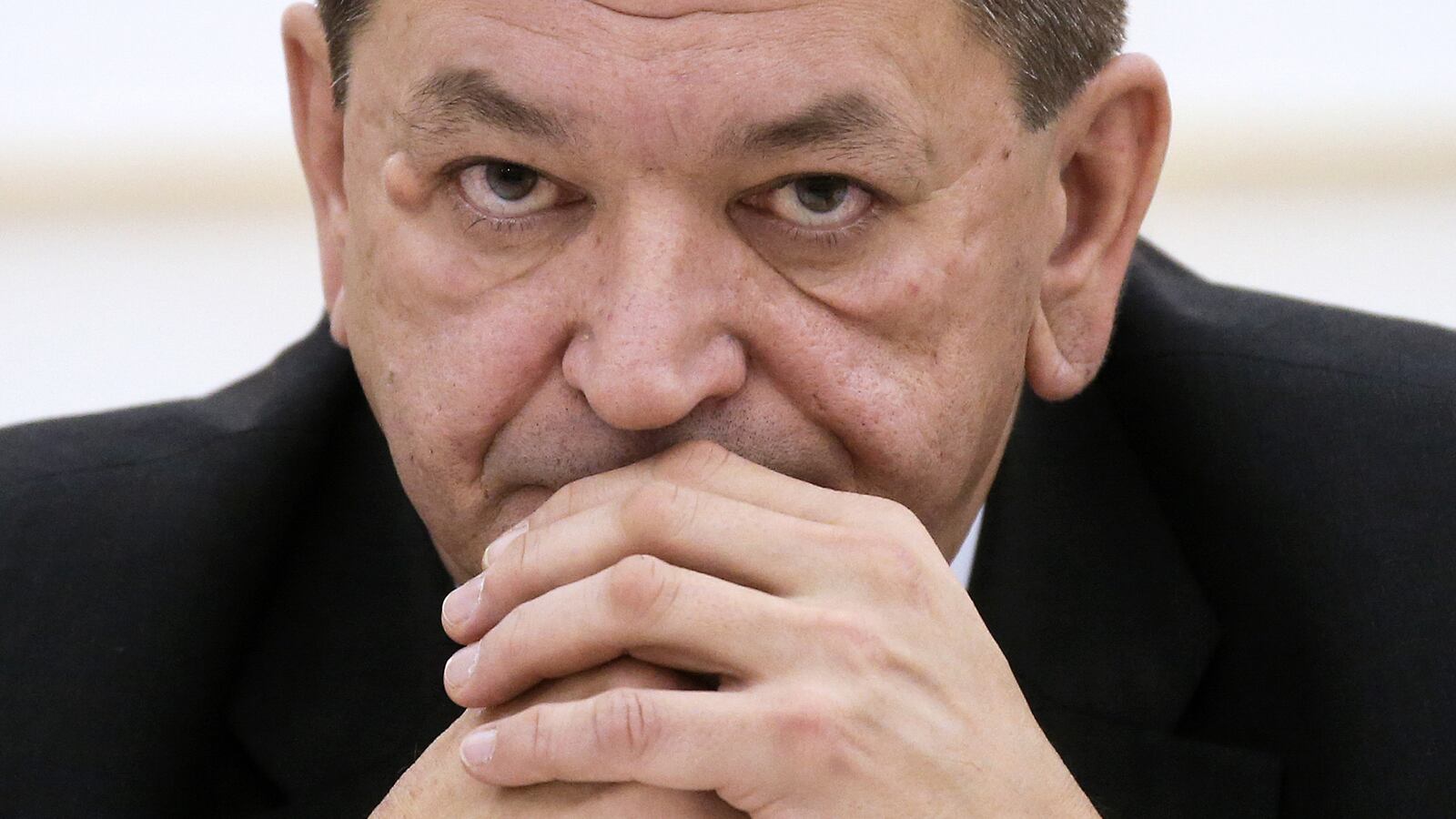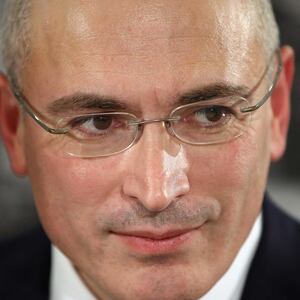LONDON—Interpol has been besieged by questions of legitimacy in recent years. Its biggest problem comes from rogue regimes abusing the organization’s role as a central police hub to call for global law-enforcement agencies to arrest their political opponents. This tactic of sticking up virtual “Wanted” posters for exiles and dissidents has rapidly accelerated, leaving Interpol at risk it will become a tool of dictators and autocrats.
Two of the most notorious culprits have been China and Russia.
This week, in a move of spectacular PR naivete, Interpol was expected to replace its former Chinese president with a Russian one.
But after a global outcry lead by the U.S. and anti-Putin dissidents in London, the organization blinked at the last moment on Wednesday, electing South Korean Kim Jong-yang as president.
The vacancy arose when Interpol accepted the “resignation” of its Chinese president, Meng Hongwei, after he was disappeared by Beijing authorities on a trip back home. His wife raised the alarm, fearing he was dead until China confirmed Meng was in its custody—12 days after he went missing.
It was hardly a textbook application of the rule of law.
Interpol had appeared ready to follow that episode with the appointment of an even more controversial new president. News broke over the weekend that lobbying ahead of a vote at an Interpol summit in Dubai—another territory with questionable legal norms—was likely to result in the election of Alexander Prokopchuk, a veteran of President Vladimir Putin’s notorious law-enforcement apparatus.
A bipartisan group of U.S. senators likened the prospect “to putting a fox in charge of the henhouse”; the chairs of Britain’s foreign and home-affairs select committees said the election of Prokopchuk would be “the latest nail in Interpol’s coffin.”
Handing the presidency of the world’s leading international law-enforcement organization to one of Putin’s officials would have been a remarkable act of cognitive dissonance.
In recent years, Russia has flaunted its disregard for international law—over the invasion of Crimea, the shooting down of Flight MH17, and the attempted murder of exiled spy Sergei Skripal—but also by misusing Interpol’s “red notice” system to persecute critics of Vladimir Putin.
The U.S. and Britain both endorsed South Korea’s Kim, who was appointed acting president last month, prompting the Kremlin to accuse the U.S. of meddling in the election.
Bill Browder, a U.S.-born critic of Putin who has been the subject of repeated attempts by Russia to use Interpol to have him arrested, likened the prospect of a Russian president of the agency to the darkest era in its history—when the Germans seized control of its functions in 1938 to chase down critics of the Nazi regime.
Browder held a joint press conference with Putin dissident Mikhail Khodorkovsky in London on Tuesday to call on the Interpol member nations to reject Russian leadership. To these men, the threat of being caught up in quasi-legal investigations is all too real. Khodorkovsky has already spent 10 years in Russian prison after being convicted on corruption charges.
They were delighted by the election of Kim. “Putin must be pacing around his office in the Kremlin furious with this humiliation,” Browder told The Daily Beast. “All Russian dissidents and Putin enemies are breathing a big sigh of relief this morning that Putin is not in charge of the international police organization.”
“We are now beginning a formal legal process to suspend Russia from Interpol because of their serial abuse of the ‘red notice’ system for political purposes,” Browder said. “Now that the world has focused on this issue, I think there is a real chance for this to succeed.”
But avoiding a Prokopchuk presidency certainly does not end the organization’s problems.
Interpol is much misunderstood. “There’s a general perception that Interpol is an international crime-fighting entity. All of that needs to be put straight in the dustbin,” explained a former Interpol intelligence officer. “I quite enjoyed it because you could use people’s ignorance—they assumed you had these amazing powers—but that’s not the case.”
It is largely not an investigative body at all. Interpol mostly processes law-enforcement alerts and shares policing information on behalf of more than 190 member nations. That means it relies on the integrity of its member nations; each country is able to send its own “diffusions”—warnings about people who may have broken the law—or “red notices” if they want someone to be arrested.
These can later be challenged by other member countries or the individuals named, but there is no way of stopping countries from submitting as many political notices as they like.
Just last week, Daily Beast contributor Lindsey Snell wrote that she had discovered Turkey put out a malicious Interpol notice in her name when she was refused a visa to travel to Iraq. President Recep Tayyip Erdogan’s regime had had her arrested, imprisoned, and accused of being a CIA agent shortly after the failed coup in 2016. The charges were eventually dropped, but the alert was secretly submitted to Interpol as a final insult.
There is still a long way to go to clean up the notice abuse, and Prokopchuk, a former major-general at the Russian interior ministry, will retain his position as an Interpol vice president.
“The Russian government abuses Interpol’s processes to harass its political opponents. Interpol and its member countries must uphold policies that advance international police coordination and preserve the rule of law,” U.S. National Security Council spokesman Garrett Marquis told The Daily Beast in an email.
Ukraine was among the first to celebrate Prokopchuk’s defeat on Wednesday. Minister of Interior Affairs Arsen Avakov tweeted a picture with the new president and wrote: “The battle is won. Thank you all!! Glory to Ukraine!”
It is highly unlikely that new president Kim will try to enact sweeping reforms, although he is popular with Western governments.
David Allen, the former head of the U.K.’s Interpol bureau, told The Daily Beast that Kim was “a very pleasant, very professional, quiet, sober individual.”
The British police veteran, who spent more than a decade working with international law-enforcement agencies, said the scale of Kim’s job would be significant, but he would still be largely constrained by Interpol’s structure.
Secretary General Jürgen Stock is the operational head of the organization. Under strictly enforced internal rules, the president is not allowed to intervene in individual cases no matter how high-profile. His role is limited to signing off on the budget and broad oversight of the general secretariat.
“What goes off in the sidelines? Well, you could deduce that from any walk of life really,” said Allen. “But in terms of operational and official business, it pretty much follows the rules from what I’ve seen.”
One former insider, who worked at Interpol for more than a decade, said there was always a flurry of interest when a new president was appointed, before everyone went on to ignore him. “There was a lot of talk when the Chinese guy came in—and he tried to be really proactive. But after a while, people stopped talking about him because, honestly, nothing happened,” he said.
While the appointment of Prokopchuk would have enraged critics of Putin and baffled crisis-communications consultants, six former Interpol staffers told The Daily Beast the media furor about the potential election of Putin’s candidate had been overblown because there was a limit on how much a Russian president could realistically subvert the day-to-day running of the policing body.
Rutsel Martha, who was general counsel at Interpol from 2004 to 2008, said the organization had introduced a strict structure in the decades after the Nazi takeover in the 1930s.
“If you look at Interpol’s current constitution, which was designed in 1956, It has been designed to ensure that no individual country can ever again have decisive power in the organization,” he told The Daily Beast.
He argued that was “very unfair” if Prokopchuk was discriminated against simply because he was a Russian. “I profoundly disagree with Mr. Browder,” he said.
Martha, whose law firm in London now represents clients who believe Interpol is intervening against them, says major reform is required at the organization.
He said complaints about wrongly issued notices should be dealt with immediately by the general secretariat when it is an obvious case rather than deferring everything to the commission for the control of Interpol files, which could take as long as nine months to clear someone’s name.
The adjudicating commission itself is not up to scratch, said Martha, who argued that it needed to become far more robust to deal with the slew of false notices. “It must start operating like a proper court because that's what it is. It should have the tools and the attitude of a court,” he said. “It would be a good role for the president to bring that matter to the level of the executive committee, discuss it and then indicate where things have to be improved.”
He said an effective president can hold the secretary general to account, oversee the work of the executive committee, and set the strategic vision for the organization.
Jago Russell, chief executive of Fair Trials, agreed that the president can play a role in shaping the overall course of the organization. “Interpol's made quite significant steps to try and fix the problems with its global alerts. It would be a real shame if that was derailed by a president that didn't want those reforms to happen,” he said.
—With additional reporting by Kimberly Dozier.







